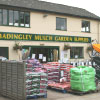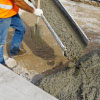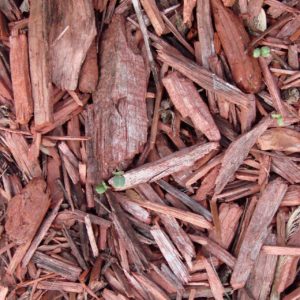Ten Common Questions About Mulch
As garden mulch suppliers, here at Madingley Mulch, Cambridgeshire, we sell a variety of mulches for gardeners and landscapers including pathway chips, rustic and decorative mulch. Here we answer ten common questions that are often asked about this must-have gardening product.
What is Mulch?
Mulch is a layer of organic or inorganic material that is placed on top of garden soil, around trees, bushes and plant beds. It can also be used as a surface for walkways and pathways, and as a substitute for turf.
How Does it Benefit My Garden?
Mulch has numerous benefits, which is why it is so popular with keen professional and amateur gardeners alike. You can find out more about the advantages of using mulch from our blog ‘Ten Benefits of Using Mulch’. but the key benefits are:
- It helps keep the soil moist by creating a protective barrier from the sun’s rays, therefore reducing evaporation.
- It is a great timesaver as it reduces the need for weeding.
- It looks fantastic, adding texture and contrast to your garden.
- Organic mulch helps fertilise the soil as it decomposes.
- It protects the soil all year round and in all weathers including during temperature extremes.
- Mulch improves aeriation.
- It attracts earthworms which helps reduce soil compaction.
What is Organic Mulch?
Organic mulches are mulches that break down over time, such as bark or wood chips. As it decomposes it benefits the soil by adding more nutrients and improving drainage. However, as this type of mulch is organic it needs to be replenished, and as a rough guide this should be done once every two to three years.
What is Inorganic Mulch?
Inorganic mulch is mulch that doesn’t break down over time, such as stones, pebbles and slates. It can’t be used as a fertiliser but is usually superior at stopping the weeds as long as it is laid at a suitable depth.
Will Mulch Improve the Look of My Garden?
Yes, mulch is also used by gardeners for decorative purposes as it gives borders and pathways a neat and uniform appearance. Mulch can also add colour and interest to a garden as there is a wide range of colours and textures available, particularly in inorganic mulches.
How Does it Help Maintain Soil Moisture?
It keeps the soil cool in summer, so it helps prevent the sun from drying it out. And, on frosty days or cold winters it provides a layer of insulation.
How Much Mulch Shall I Apply?
Garden mulch suppliers Madingley Mulch advise that if you are using mulch, the trick is not to apply too thick a layer. This is because too much mulch forms a barrier, preventing water from penetrating it and it also stops the air getting through, which worsens the condition of your plants and can cause root rot. A top tip is to not use more than an inch of mulch on newly planted bushes or trees and to use about two to three inches of mulch around flower beds and more established trees and shrubs.
What Happens if I Pile it Against a Tree Trunk?
Although it can be tempting to do this, it’s best avoided at all costs. This is because mulch piled high will retain more moisture and if the trunk of the tree remains wet (due to piling) it can cause root rot. Piles of organic mulch can also be a magnet for rodents of all kinds who may seek refuge in the mulch and attack the bark. To prevent this, spread the mulch several inches away from the base of the tree.
Do I Water Bark Mulch?
Newly spread bark mulch needs to be watered as soon as possible. This is because the way the mulch is stored at the depot means it can reach quite high temperatures. If the mulch is removed from the bag and spread on your flower beds, then left to dry out, it can attract fungi which makes the surface water resistant. To prevent this it is advisable to give your newly laid mulch a good watering.
Do I Still Need to Weed a Mulched Area?
Mulch helps prevent weeds, but it doesn’t stop weeds growing entirely. You’ll still need to pick over your flower beds a couple of times a year, and it may be worth raking the mulch up a bit at the same time to maintain its appearance.
Garden Mulch Suppliers – Click here to see our full range of organic and inorganic mulch from Madingley Mulch, Cambridgeshire.
Back to blog




